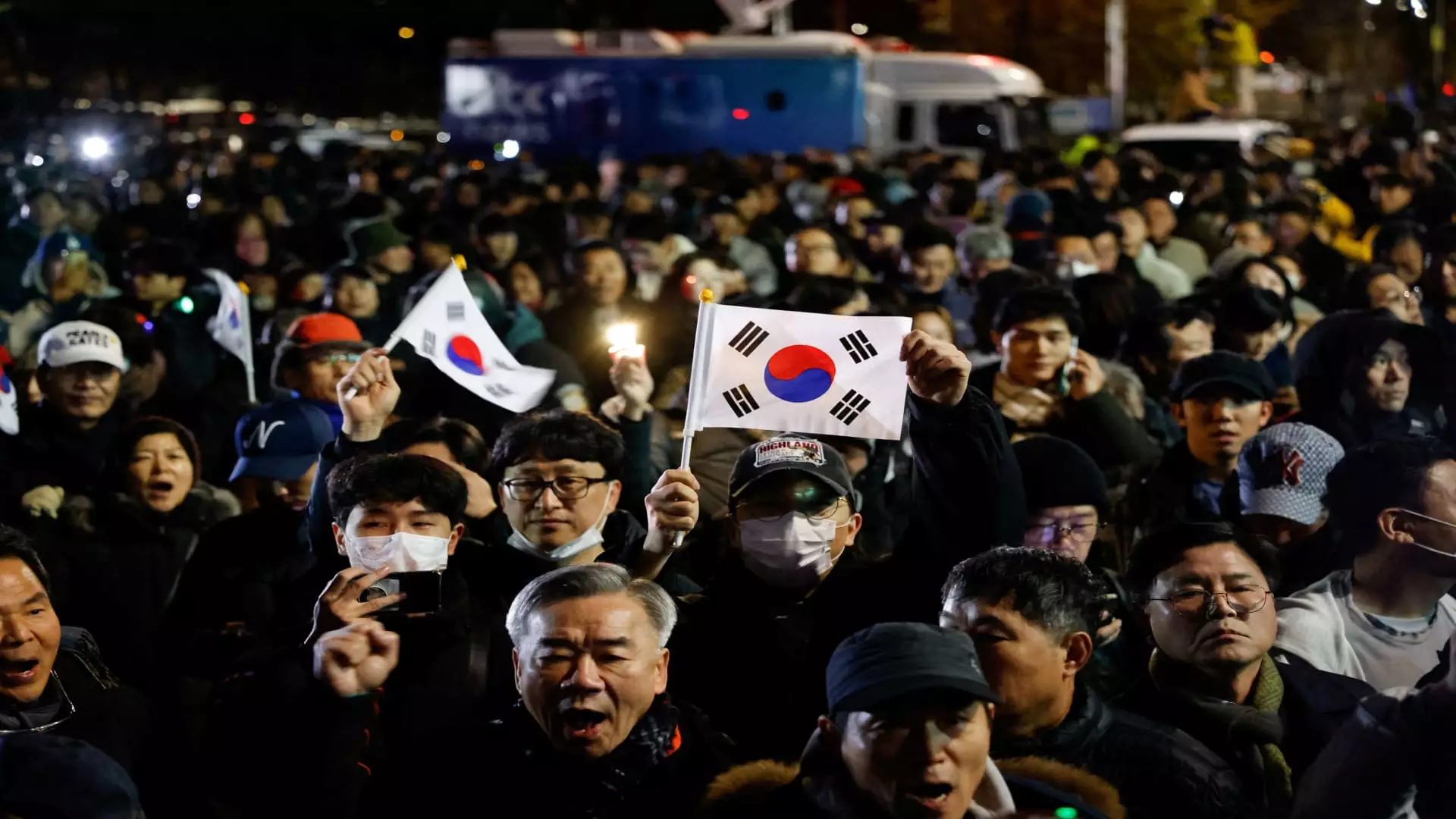The political landscape in South Korea is currently marred by an unprecedented crisis, led by President Yoon Suk Yeol, who is facing severe backlash following a failed attempt to impose martial law. This incident has not only raised questions about his competence but has also engulfed the nation in a constitutional crisis. As calls for his resignation amplify and dissatisfaction percolates through the ranks of both the military and his own political party, the implications of this turmoil resonate beyond domestic borders, threatening the legacy of democracy in South Korea.
On December 3, President Yoon made a controversial move that stunned many when he declared martial law, granting the military extensive emergency powers to combat what he called “anti-state forces.” However, this decision was met with fierce resistance and was swiftly rescinded within six hours, showcasing both the depth of dissent within governmental ranks and the fragility of his leadership. A unanimous parliamentary vote against the decree defied both military and police interventions and pointed towards a significant pushback from the political sphere.
Evidence of Yoon’s deteriorating grip on power has culminated in a travel ban initiated by the Corruption Investigation Office for High-ranking Officials, as well as a criminal investigation into his actions in the wake of the failed martial law imposition. The perception of a leadership that is floundering is further emphasized by the establishment of a task force within his ruling People Power Party (PPP) aimed at addressing both “political stabilization after martial law” and the discussions surrounding Yoon’s possible resignation.
The ongoing turmoil has not only fueled opposition sentiments but has also fractured the military’s allegiance to the president. Influential military leaders have signaled their unwillingness to comply with further martial law orders, indicating a significant shift in loyalty away from Yoon. Colonels and other high-ranking officials have begun to speak out, reflecting a growing realization that continuing to support Yoon may jeopardize their own careers and reputations. Colonel Kim Hyun-tae’s admission of being ordered to intervene in parliament demonstrates the extent to which military operations may be politicized under Yoon’s command.
Moreover, the PPP’s decision to delegate key presidential powers to Prime Minister Han Duck-soo raises constitutional questions. The change has been criticized for potentially undermining democratic principles, revealing a deep-seated concern that South Korea’s political stability and integrity are at risk. A major point of contention lies in the duality of power, where the prime minister, unlike the US Vice President, lacks an electoral mandate, rendering any authority he exercises devoid of democratic validity.
The ramifications of this political upheaval extend into the economic sphere, threatening South Korea’s standing as a key player in global markets, particularly in the memory chip sector. Opposition leader Lee Jae-myung has voiced serious concerns regarding the “irreversible harm” this political crisis could inflict on the economy. With South Korea being Asia’s fourth-largest economy and a significant supplier of critical technology components, the financial sentiment is anything but optimistic.
In light of these developments, the government has pledged to implement contingency plans aimed at stabilizing financial markets and boosting liquidity before the year ends. These efforts are crucial not only for domestic stability but also for maintaining international confidence in South Korea’s governance structures.
The International Response and Future Prospects
The international community is closely monitoring the events unfolding in Seoul. The United States, a long-standing ally, has expressed concern, with Secretary of State Antony Blinken affirming expectations for adherence to democratic processes. The U.S. military presence of 28,500 troops in South Korea underscores the critical necessity for stability in the region, particularly against the backdrop of escalating threats from North Korea, which appears to be strengthening ties with Russia.
As South Korea steers through these turbulent waters, the immediate future remains uncertain. President Yoon’s reluctance to resign amidst climbing pressure may potentially lead to further political gridlock, prolonging a crisis characterized by increasing dissatisfaction across multiple fronts. The coming weeks are pivotal, as both the South Korean populace and the international community watch closely, hoping for a resolution that upholds democratic ideals while securing the nation’s stability amidst turmoil.



Leave a Reply